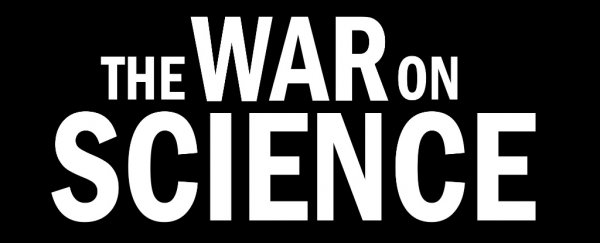Science has done a lot for the world. And when we say a lot, we mean a whole lot. Cars, iPhones, electricity, medicine, Hubble - you can thank scientists for all those things. Not to mention its involvement in helping us explore the Universe, and understand our place in it. And yet we still see people reject science every day. As the latest episode of AsapSCIENCE explains, we're in the middle of a war against science. And it's been raging for a long time.
Since humans first evolved, science has consistently improved our lives, fuelling the enlightenment era, the industrial revolution, and now the digital age. But society has often been at odds with science. So much so, in fact, that Italian astronomer Giordano Bruno was burnt at the stake in 1600 for suggesting that Earth wasn't at the centre of the Universe. And Galileo was put under house arrest for supporting the theory.
Today, advances in medicine and agriculture have saved more lives than have been lost in all the wars in history. And yet, many people still reject the scientific evidence for vaccinations - and that rejection has seen the return of preventable diseases such as measles, despite having already been wiped out in many developing countries 15 years ago.
There's also serious rejection of climate change, despite the fact that 97 percent of climate scientists agree that it's happening due to human activity.
Those wars are bad enough, but when it comes to funding, science is taking an even bigger hit. The UK's investment into publicly funded research has dropped to less than 0.5 percent of their gross domestic product (GDP) - the lowest in two decades, as the video above explains.
And this year the US has cut $300 million from NASA's earth science budget, which just happens to cover climate science. Let's not even mention the fact that the US's bank bailout cost more money than NASA's entire 50-year running budget. Still think we spend too much on space? One month of the US's military spending is equivalent to NASA's entire annual budget.
As Carl Sagan so perfectly put it: "We live in a society exquisitely dependent on science and technology, in which hardly anyone knows anything about science and technology." And that's a real shame, because without scientific advancement, societies in the past have crumbled.
So what can we do about it? Watch the video above to find out how you can help spread the science love, and, most importantly, remember: don't stop talking and thinking about science every day. It really does make the world a better place.
